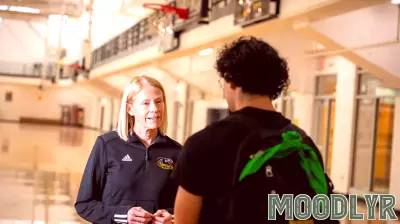The Impact of Coaching Leadership Styles on Athlete Engagement
September 17, 2025 - 05:56

A recent study delves into the intricate relationship between coaching leadership styles and athlete engagement, highlighting both direct and indirect effects. The research emphasizes the role of perceived social support as a critical factor in this dynamic.
Coaching leadership styles significantly shape how athletes perceive their environment, which in turn influences their level of engagement in training and competition. The study identifies that when athletes feel supported by their coaches, they are more likely to be engaged, motivated, and committed to their sport. This engagement is crucial for enhancing performance and overall athlete satisfaction.
Moreover, the findings suggest that different coaching styles can lead to varying levels of perceived social support among athletes. Coaches who adopt a more democratic and supportive approach tend to foster stronger relationships with their athletes, resulting in higher engagement levels. This research underscores the importance of effective coaching strategies in nurturing athlete development and promoting a positive sporting culture.
MORE NEWS

February 21, 2026 - 02:30
Home Really Is Where the Heart IsThe age-old saying `home is where the heart is` is more than just a sentimental phrase; it is a neurological reality. New research suggests that the profound feeling of home is an idea we...

February 20, 2026 - 05:37
Racist Attitudes Linked To Future Psychological Distress – But Could Both Be Fueled By Something Else?A new research study is challenging the straightforward assumption that holding racist views directly causes future mental health problems. While confirming a link between prejudiced attitudes and...

February 19, 2026 - 04:05
UWM Professor Uses Sport Psychology Research to Solve Real-World ProblemsProfessor Barbara Meyer possesses a uniquely analytical lens that she applies to nearly every situation. Whether she`s guiding Olympic athletes, consulting with a university soccer team, or simply...

February 18, 2026 - 03:25
Why couldn't Ilia Malinin handle the pressure? Sports psychologists offer their thoughtsThe recent performances of top athletes have reignited a crucial conversation within the world of elite sports: the immense psychological burden of competition. While the spotlight often falls on a...